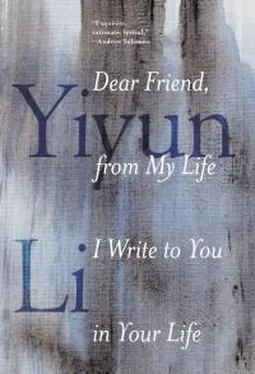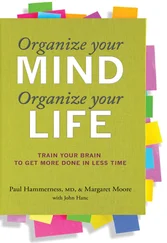Only in the most extraneous or contract-bound interactions is there the possibility that each person takes up only one role agreed upon, and in these situations memory can be overwritten. One may also have a less complicated relationship with a book. The book is timeless; one has only to account for one’s own changing in time.
To be more than one, to be several, and to live with the consequence, is inevitable. One can err the opposite way, and the belief in being nothing used to seem to me the most logical way to live. Being nothing is being invisible and replaceable; being nothing to others means remaining everything to oneself. Being nothing is one way to battle the autoimmune condition of the mind, and this is closest to my friend’s silence. Yet silence is not melodrama, or at least it is not presenting itself to be.
—
STEFAN ZWEIG HAS been rediscovered in America in recent years, but to me he is associated with the 1980s, when I read him tirelessly as a teenager. In one of my favorite novellas, “Letter from an Unknown Woman,” the recipient of the letter, a famous writer and womanizer, does not recognize the sender, a woman who claims to have loved him all her life. She was his neighbor as a young girl and watched him live a busy life among women. Later, he mistook her for a prostitute. She bears his child, who dies in the flu epidemic of 1918; she, about to die herself, writes the letter to narrate her lifelong love.
It is a melodramatic story in the sense in which melodrama is commonly used—it is not surprising that it has been adapted into films in several languages—but Zweig elevates the woman from a mere cliché by granting her a fate that most dare not meet. She does not deceive herself by finding dignity in her despair. “Such purposeless affliction,” she says of her life, yet without regret.
When I first read the novella at fourteen, I was enamored of the woman’s valiant loyalty. I now see what I missed. Rather than a story of unrequited love, it is a story about melodrama’s transgression. The woman accuses the man of “almost inhuman forgetfulness,” yet the necessity to forget is only human. What is truly inhuman is the woman’s refusal. She has the courage to keep her melodrama intact; the callousness to imprison another person in it. This is the cruelty of melodrama—like suicide, it neither doubts nor justifies its right to be.
More damaging than becoming a victim of political or historical turmoil is becoming the casualty of someone else’s memory. At the end of the novella, the man shudders. Who, then, lives in a real sorrow: the woman, who has maintained melodrama as the only form of her memory, or the man, who has been, and will always be, imprisoned by another person’s remembering?
I am unfairly prejudiced against the woman because, unlike at sixteen, I am wary of the damage a person’s memory can do. Do you know the moment I die your father will marry someone else? my mother used to whisper to me when I was little. Do you know I cannot die because I don’t want you to live under a stepmother? Or else she would be taken over by an inexplicable rage, saying that I, the only person she loved, deserved the ugliest death because I did not love her enough. Why did you curse me so, Mother; why did you not stop her cursing, Father? Though the truth is, I do not want to know the answers. I resent even thinking about the questions—what others and the world have done should not define one as much as what one has done to oneself.
There is a defiance that comes only with youth and inexperience, the refusal to accept life as it is. In his memoir Ways of Escape, Graham Greene reminisces about the first film he saw at six—a silent film about a kitchen maid turned queen—and the music offscreen. “Her march was accompanied by an old lady on a piano, but the tock-tock-tock of untuned wires stayed in my memory when other melodies faded….That was the kind of book I always wanted to write: the high romantic tale, capturing us in youth with hopes that prove illusions, to which we return again in age in order to escape the sad reality.” Greene is the only writer I have read who acknowledges that he not only enjoys melodramas, but also wants to write them. Me, too! I wrote in the margin. It is the only time I have admitted my ambition, albeit to a dead man. It does not matter that I may fall short. To capture a moment—of life, of history—is less a reason to write than to return to confront the melodrama, to understand how illusions beget illusions, memories eulogize memories.
Rereading the novella this time, I have forgotten—or refused to remember—what was the music I heard in the first place. I respect the woman for her unyielding belief in memory. How many of us dare to claim that? There are people we long to invite into our memories, people we long to invite us into theirs; people we strive to build memories with for the future. Yet in the end, there is something unbearable in that music. One may catch a few phrases now and then in solitude, one may allow oneself to hear its echo in a story or in a passing conversation, but to share that melodrama with another person or even to acknowledge it fully to oneself requires wisdom and courage.
—
AFTER BREECE D’J Pancake committed suicide, his mother asked James Alan McPherson to write a foreword for his collected stories. Pancake had studied with McPherson at the University of Virginia in the 1970s, and they had become friends. McPherson was my mentor at the Iowa Writers’ Workshop.
Pancake had a habit of giving presents to everyone in his life. “He loved to give but never learned to receive. He never felt worthy of a gift,” his mother wrote in a letter to McPherson. McPherson, too, was generous with presents. One summer he gave every workshop student a toy mouse that sings and does kung fu; another summer he gave everyone a book ( Master and Man and Other Stories by Tolstoy); there was a sophisticated clock, palm-sized and ornamented with figures, that he wrapped up unevenly for our elder son before his birth; there was a gift set of Goodnight Moon for our younger son, McPherson’s namesake; there were beautifully sculpted plates and expensive chocolates for our family from Von Maur, a department store in Iowa City where a pianist in a long dress played Chopin in the afternoon to a near-empty store. When McPherson turned sixty, a friend and I arranged to meet a flower farmer, the husband of my former colleague, in a parking lot to buy sixty flowers. It was fall, late in the season, and the farmer was annoyed at the timing. If only you’d asked last week, he said; I had better flowers then. McPherson received the gift as generously as he always gave.
“I always thought that the gifts he gave were a way of keeping people away…of focusing their attention on the persona he had created out of the raw materials of his best traits,” McPherson wrote about Pancake. It is difficult to read that sentence. Pancake’s desire to always give is familiar to me, though I cannot give without questioning my motives. Does giving have to do with generosity, or with the selfish comfort it brings? The self-deception it offers, when the truth is one has little, or nothing, to give? If one keeps giving, will one be good enough to be loved one day?
Unlike the woman in Zweig’s novella, Pancake did not let the melodrama in him transgress. He gave more than he had, more than he ought to, but he did not trap anyone. People who have not experienced a suicidal urge miss a crucial point. It is not that one wants to end one’s life, but that the only way to end the pain—that eternal fight against one’s melodrama so that it does not transgress—is to wipe out the body. I distrust judgments—Mann’s or anyone’s—on suicide. They are, in the end, judgments on feelings.
Читать дальше












